New pseudo-tycoon! Don’t be fooled by the opening highlights!
11:31am, 7 November 2025Basketball
As of now, the Bulls have a record of 6 wins and 1 loss, ranking first in the Eastern Conference. Before that, they had completed a special historical moment:
On October 31, 2025, the Bulls defeated the Knicks 135-125 and won their fifth win of the season, achieving the first five-game winning streak in the team's history since the 1996-97 season.
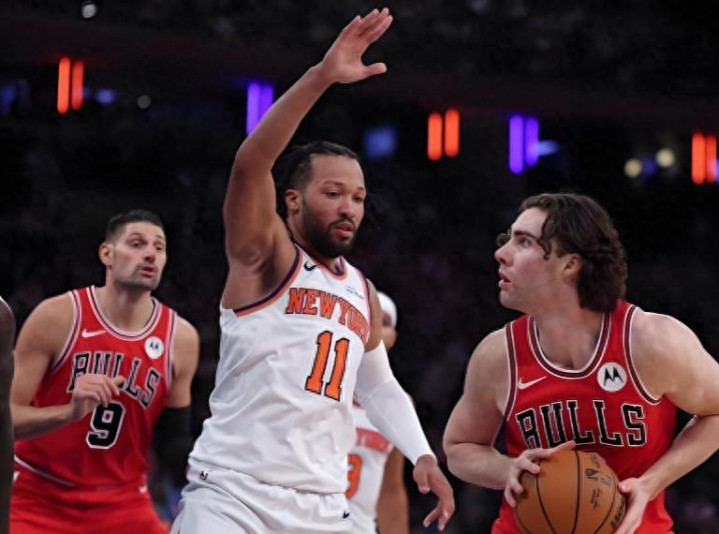
Although this winning streak was interrupted by the Knicks and missed seven consecutive victories, it was still a good enough start. It just makes people wonder, is this brilliant start a display of the Bulls' strength, or is it just a flash in the pan?
In the 1996-97 season, the second season of the trio of Jordan, Rodman, and Pippen, the Bulls ended the season with a record-breaking 69 wins and 13 losses, the second-best regular season record in team history, and finally won the second of three consecutive championships.
In addition, the Bulls have three consecutive four-game winning streaks at the beginning of the season. They were in the 1987-88 season, when they ended up in the second round of the season, and in the 1995-96 season, when they finally won the championship. In the 2021-22 season, they were eliminated in the first round of the playoffs.
All three four-win seasons have made it to the playoffs. Judging from this trend, if they can get off to a bright start, it will be a season worth looking forward to for the Bulls.
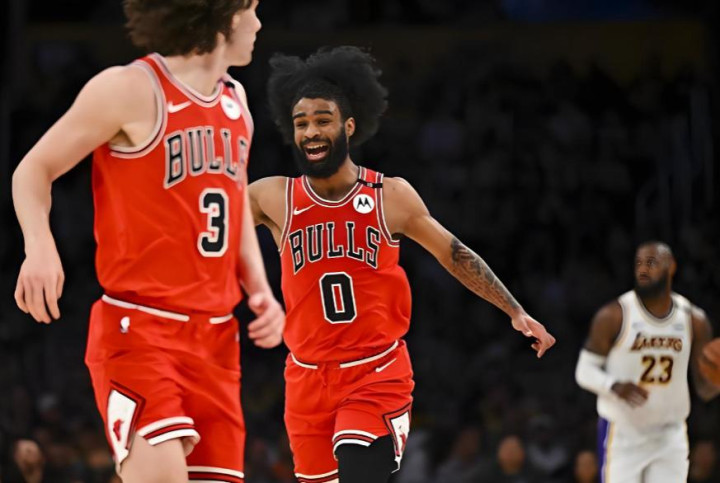
This wave of winning streak shows not only the impressive record, but also the current real situation of this young Bulls. Although there are bright spots, structural problems still exist. The Bulls are in an embarrassing stage of pseudo-reconstruction. They are not bad enough to compete for high draft picks, but they are not good enough to compete in the playoffs.
Especially the last game of the five-game winning streak against the Knicks, it just verified this.
First, let’s review the game:
At the beginning of the game, the Bulls took a few minutes to adapt to the rhythm of the game, and then showed offensive firepower. Relying on smooth passing coordination and outside shooting, they led 35-27 in the first quarter and widened the point difference to 72-53 in the first half. However, in the second half of the game, the situation took a turn for the worse. The Knicks launched a 23-9 offensive in the third quarter to chase the point difference to 5 points. Although the Bulls still maintained a 100-91 lead at the end of the third quarter, the shortcomings on the defensive end were already quite obvious.
The Knicks, with their offense revived, relied on Anunoby's two three-pointers in the final quarter. The score reached 115-113, only 2 points behind, and the game instantly fell into a stalemate. From leading by up to 22 points to only 2 points in the middle of the fourth quarter, the gap is enough to illustrate the Bulls' defensive problems.
Fortunately, Gidi and Vucevic stepped forward at the critical moment. Tre Jones, who had not scored a point in the first three quarters, made all 8 free throws in a single quarter. Gidi's breakthrough layup in the last two minutes extended the lead to 12 points to seal the victory, and finally won the fifth consecutive victory of the season 135-125.
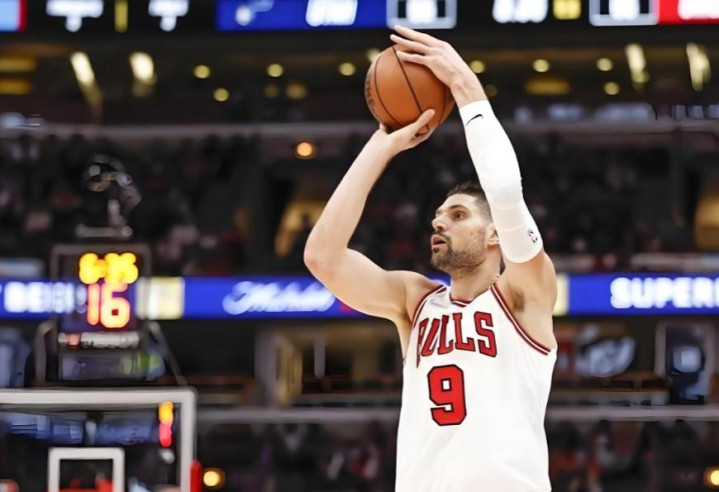
Although they won, this game was not easy.
From the perspective of player performance:
Josh Giddy is the first contributor to this five-game winning streak. During the five-game winning streak, he averaged 22 points, 8.8 rebounds and 8 assists per game, shooting 48.1% from the field and 45.5% from the three-point range, which is a standard All-Star level. But it is undeniable that the backcourt combination of Gidi and White is still a big problem defensively.
White is absent due to injury, and relying on Tre Jones to fill in, the Bulls don't have to worry about defensive shortcomings for the time being. But when he returns in the future, the Bulls' backcourt defense will surely face a severe test again. Compared with the highlights on the offensive end, Gidi's average of only 0.9 steals per game this season is also a career low, and he needs to pay attention to it in the future.
In addition to Gidi, the 35-year-old Vucevic showed stable output during the winning streak. During the five-game winning streak, he averaged 19.8 points, 12 rebounds and 4.4 assists per game, shooting 58.5% from the field and 50.0% from the three-point range, which was still efficient enough.
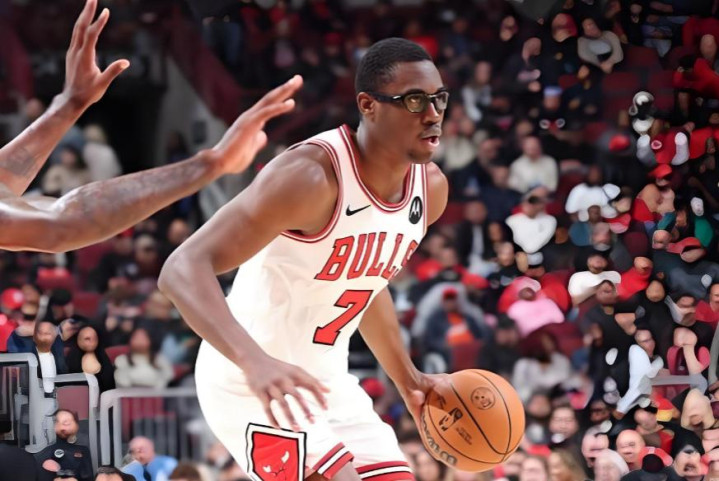
But the problem is that Vucevic is not the future of the Bulls. As a veteran center with one year of contract left, his transaction value will drop at any time. Although he has a three-point threat and meets the needs of contemporary small-ball centers, his defense speed has dropped significantly due to aging; backup center Jaylen Smith occasionally has bright spots, but his height is a flaw.
With the Bulls' current inside rotation depth, defense is still a major concern when facing the Cavaliers or Bucks who have high-quality inside players in the East. In the long run, if the Bulls are serious about rebuilding, they should send Vucevic away as early as possible before the trade deadline in exchange for more young strength or first-round draft assets.
Then there is Dosunmu. Starting from the bench this season, he averaged 16.2 points, 3 rebounds and 3.2 assists per game during the five-game winning streak, with a shooting percentage of 57.7%. His stable output on both offense and defense is an important guarantee for the Bulls to maintain their backcourt rotation.
Last season’s three-point shooting percentage was 32.8%, and this season it has also rebounded to 47.6%. His defensive enthusiasm and non-possessing style of play make him the most suitable secondary player in the team to pair with Gidi. If the backcourt continues to be absent, Dosunmu's value will still be irreplaceable.
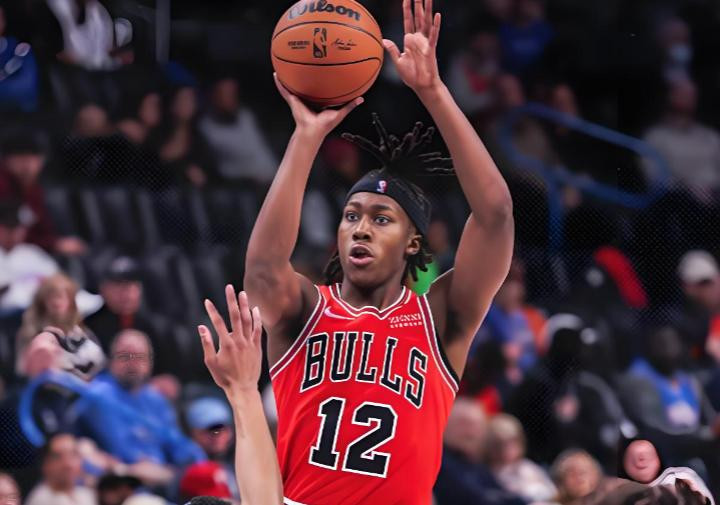
After that is the 21-year-old forward Buzelis, who is gradually realizing his talent. During the five-game winning streak, he averaged 16 points and 3.8 rebounds per game. However, his problem is not talent, but game stability.
In the first game of the season, he scored 21 points against the Pistons. In the second game against the Magic, he only played 12 minutes and 24 seconds before leaving the game with 6 fouls, scoring only 3 points. In the third game, he faced the Hawks with 16 points, in the fourth game with the Kings, he scored 27 points, and in the fifth game, he scored 13 points. The offensive end has indeed improved significantly, but the defensive experience and confrontation scale are still a bit worrying.
The three-point shooting rate will be a key factor. Buzelis's current outside shooting rate is 42.4%. Although it has improved compared with the first two games of the season, more time is needed to prove stability. Compared with the three-point fluctuation, his foul problem is more serious. During the five-game winning streak, he accumulated 20 fouls, averaging one foul every 7 minutes.. And if foul control cannot be improved, which will affect his playing time and offensive and defensive rhythm, the route to realize his talent in the future will still not be simple.
The unexpected surprise came from the trio of Okoro + Pawe + Helt.
Frankly speaking, before the start of the season, Pawei was not worth looking forward to. He has never made breakthrough growth in the past five seasons, and the same is true for Okoro in the same echelon; as for Huerter, it is the salary bargaining chip in the LaVine trade case. Just like this, these three players, each with their own shortcomings, produced unexpected results under Donovan.
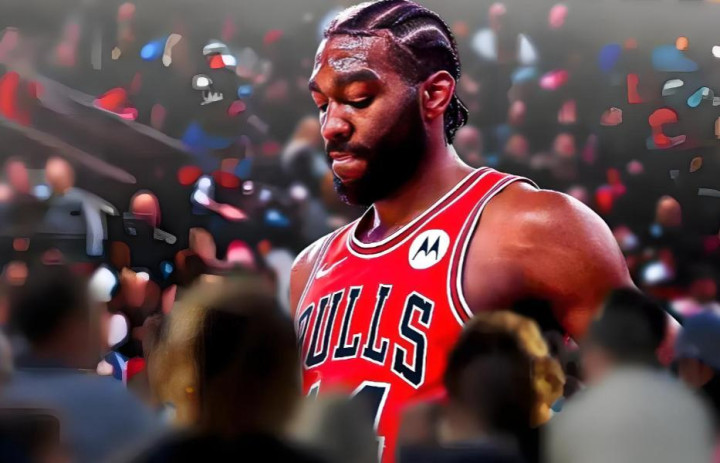
Judging from the rotation arrangement at the beginning, Donovan's strategy is to let Okoro start, defend the opponent's main force, and use physical confrontation to consume the opponent's energy; while Pavey and Huerter share the remaining wing playing time, creating a complementary combination of "starting defense + substitute offense".
But the current chemical reaction of "the three of them have their own flaws, but together they are useful" should be unexpected by the Bulls.
Okoro focuses on defense and does not occupy the ball. Pawei's playing time is reduced but his efficiency is improved. Huerter is fully used in the second lineup. The three complement each other and form an unexpectedly stable wing rotation system.
Of course, the sustainability of this trio is still questionable. Okoro's net rating and true shooting percentage are disastrous. Basically, he hurts the team every offensive possession when he comes on the court. In the same way, as the season goes on, the problem of one less offensive player in the starting lineup will continue to amplify.
If Huerter's three-pointers continue to be sluggish, the average points per game will continue to decline. Although Pavey's efficiency has improved, the number of game samples is too small. Based on his growth trajectory over the past five seasons, it is best not to be too optimistic.
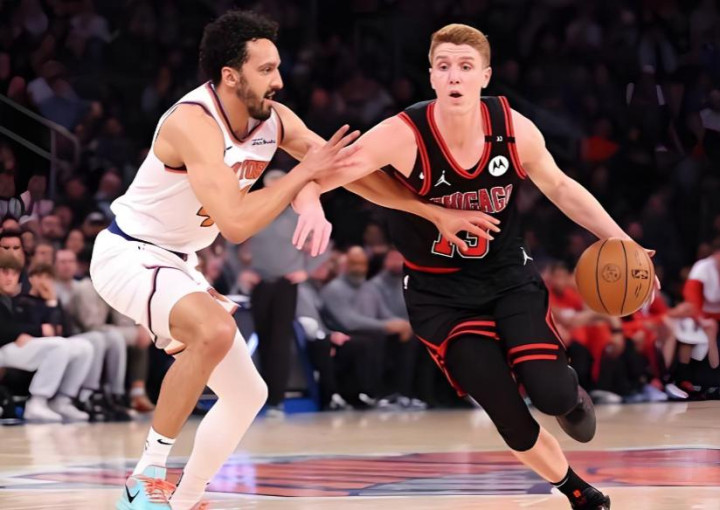
As for this record-breaking five-game winning streak in team history, there are also some structural problems behind it:
First, let’s review the process of the five-game winning streak:
The first game Against the Pistons: 115-111, Gidi had 16 points, 10 rebounds and 8 assists;
In the second game against the Magic: 110-98, Pavey had 18 points and 8 rebounds;
In the third game against the Hawks: 128-1 23, 8 players on the team scored in double figures;
Game 4 against the Kings: 126-113, Buzelis’ career-high 27 points;
Game 5 against the Knicks: 135-125, Gidi’s career-high 32 points higher;
Observing these five games, there are several phenomena worth noting:
The first is the shortcomings on the defensive end, with an average of 104.5 points conceded in the first two games and an average of 120.3 points conceded in the last three games. When opponents begin to adapt to the Bulls' lineup, the team's defensive system will also be challenged. In addition, it comes from the depth of the lineup. Although different players have stepped up in the five games, optimistically it is a rotation depth advantage, but it also reflects the team's lack of absolute core.
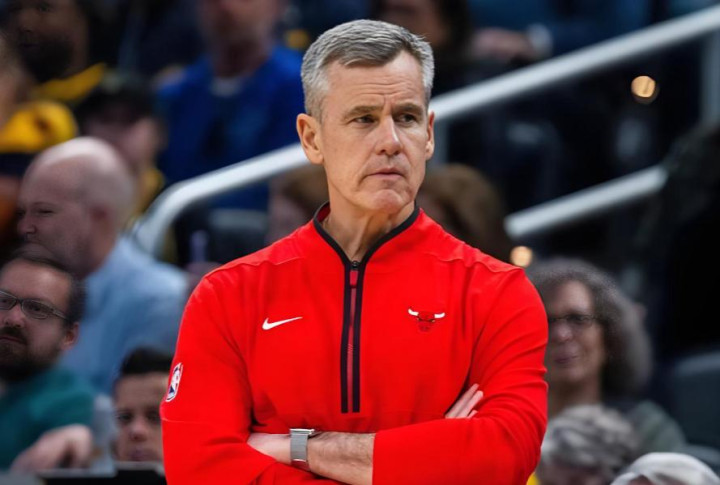
Especially in the fifth game, the most noteworthy thing is not the Bulls' high score, but more focus on defense. The lack of manpower in the penalty area also affects the stability of the team's overall defensive system.
The Bulls have conceded an average of 114 points per game this season, ranking seventh in the league, which looks good. But it is worth noting that the opponent's three-point shooting percentage is only 30.1%, and the average three-pointer attempts are 30.6 times per game, both ranking first in the league. But this comes from a small sample of five consecutive victories, and the opponent's three-point shooting rate is low. In many cases, there may still be some luck involved.
So far, the Bulls have averaged 120.4 points per game this season, ranking seventh in the league, and their offensive firepower seems strong. But this is based on a 40.3% three-point shooting rate and an extraordinary performance of 14 three-pointers per game. These two statistics rank second in the league and tenth in the league respectively. But the Bulls' problem seems not to be the smooth transition offense, but more to the lack of a stable terminator role at critical moments.
It was Gidi in the last game, Dosunmu again in this game, and Vucevic again in the next game. Whether White can shoulder the responsibility of finishing at critical moments after returning in the future is still unknown.
Although the Bulls' offense is smooth, when the game falls into a stalemate, they still need someone to step up and stabilize their morale. It is still a little difficult for Gidi alone to carry the team.
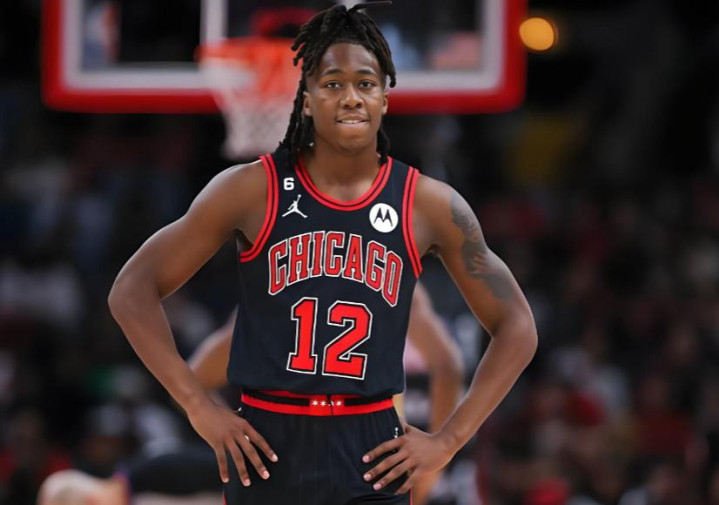
So, the most direct question is, the Bulls, who had a brilliant start, have they succeeded?
Obviously, not yet.
For the management, facing the situation in the Eastern Conference after the Celtics lost Tatum, the Pacers lost Harry, the Bucks waived Lillard, and the Heat sent away Butler, such a winning streak should be an opportunity, but will this be an excuse for them to delay reconstruction again?
Especially after defeating the Knicks and winning five consecutive games, it happened to be Donovan's 200th win as coach of the Bulls. 200 wins in six seasons, with a winning rate of just over 50%. In the Eastern Conference, which does not have absolute power, this record is actually not bad. But from a practical point of view, this start is worthy of celebration, but it seems more like a dream.
For the Bulls, their current standards are still in the stage of getting rid of the pseudo-reconstruction phase. They should clarify their future direction as early as possible and don't be fooled by the seemingly optimistic illusion in front of them. Continue to languish and accumulate more talent, instead of lingering awkwardly on the edge of the play-offs and continuing to miss out on more potential cornerstone newcomers.
Looking at the 2026 draft year, if the Bulls fall into an awkward pick range again, they are likely to miss out on highly anticipated lottery picks such as Darin Peterson, AJ Dibanza, Cam Boozer, Mikel Brown Jr., and continue to fall into a vicious cycle.
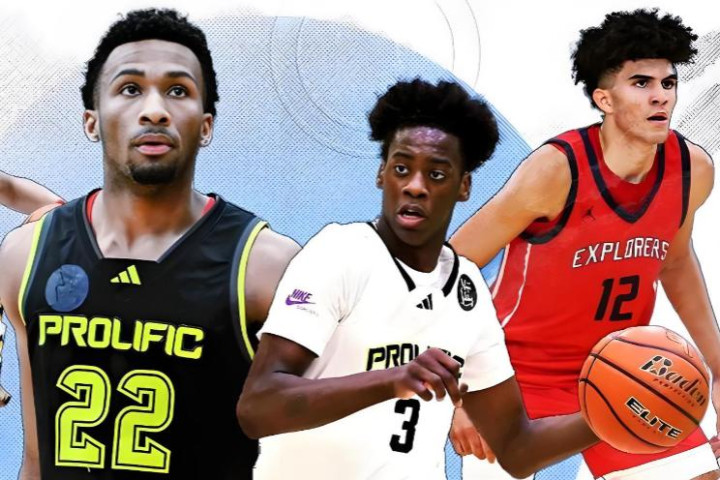
From the perspective of fans, we naturally hope that the Bulls can become a strong team. But after the highlights, we still need to look at the team's structural problems rationally.
The five-game winning streak in 2025 is different from the previous winning streaks. After the celebrations, the problem still exists.
Related Posts
- Rockets future dual-core 2k value is announced, Amen is comparable to Butler, Shin Kyung and Zion Xiaosa are in the same level
- Yesterday s season high! Baylor-Scheilman posted photos on Instagram to share with fans: Accumulation over time
- The most bleak trading trend in the NBA offseason has appeared!
- Thunder lost G6 and was still enthusiastic to take over by the Russian City fans! SGA talks about his first tiebreaker in his career: This is the goal of life
- Loyalty for the country! Yang Hansen returned from the NBA to play the Asian Cup in August, Zhou Qi relapsed from his old injury and the men s basketball center sued for emergency
- The quarrel started! The 56-year-old coach criticized Edwards for playing too badly at the start after the game, and Huazi responded to the head coach
- Newcomers explode! Veterans are stable! Five value-for-money signings in a deserted market!
- Not as good as Turner? Chett made only 13 points and 5 mistakes in the past two games, and he scored in three finals without even doubles
- The third quarter crashed 3-4 and was eliminated! Harden scored 7+13& the small card was 22+5, the Clippers defeated the Nuggets 101-120
